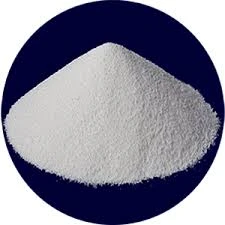- Afrikaans
- Albanian
- Amharic
- Arabic
- Armenian
- Azerbaijani
- Basque
- Belarusian
- Bengali
- Bosnian
- Bulgarian
- Catalan
- Cebuano
- Corsican
- Croatian
- Czech
- Danish
- Dutch
- English
- Esperanto
- Estonian
- Finnish
- French
- Frisian
- Galician
- Georgian
- German
- Greek
- Gujarati
- Haitian Creole
- hausa
- hawaiian
- Hebrew
- Hindi
- Miao
- Hungarian
- Icelandic
- igbo
- Indonesian
- irish
- Italian
- Japanese
- Javanese
- Kannada
- kazakh
- Khmer
- Rwandese
- Korean
- Kurdish
- Kyrgyz
- Lao
- Latin
- Latvian
- Lithuanian
- Luxembourgish
- Macedonian
- Malgashi
- Malay
- Malayalam
- Maltese
- Maori
- Marathi
- Mongolian
- Myanmar
- Nepali
- Norwegian
- Norwegian
- Occitan
- Pashto
- Persian
- Polish
- Portuguese
- Punjabi
- Romanian
- Russian
- Samoan
- Scottish Gaelic
- Serbian
- Sesotho
- Shona
- Sindhi
- Sinhala
- Slovak
- Slovenian
- Somali
- Spanish
- Sundanese
- Swahili
- Swedish
- Tagalog
- Tajik
- Tamil
- Tatar
- Telugu
- Thai
- Turkish
- Turkmen
- Ukrainian
- Urdu
- Uighur
- Uzbek
- Vietnamese
- Welsh
- Bantu
- Yiddish
- Yoruba
- Zulu
دسمبر . 26, 2024 16:30 Back to list
Understanding Injectable Ivermectin Use in Goat Health Management and Treatment Options
The Use of Ivermectin for Goats An Injectable Solution
Ivermectin has long been recognized as a crucial antiparasitic medication in veterinary medicine. Specifically for goats, ivermectin is an invaluable asset in maintaining herd health and preventing parasitic infections that can lead to significant health issues. As an injectable formulation, it provides several advantages that address both the welfare of the animals and the management concerns of goat farmers.
Understanding Ivermectin
Ivermectin is a member of the avermectin class of antiparasitic agents and is derived from a soil bacterium called *Streptomyces avermitilis*. Its primary function is to interfere with the neuromuscular transmission of parasites, leading to paralysis and ultimately death. It is effective against a wide range of parasites, including nematodes, external parasites such as mites and lice, and some species of protozoa.
The Importance of Parasitic Control
Goats are particularly susceptible to various internal and external parasites due to their foraging habits and the environments in which they are kept. Common internal parasites include gastrointestinal worms such as Haemonchus contortus (barber pole worm), which can cause anemia and significant weight loss. External parasites, like ticks and lice, can lead to skin irritations and secondary infections.
Effective parasite control is crucial not only for the health of individual animals but also for the productivity of the herd. Infestations can result in decreased weight gain, poor milk production, and overall weakened immunity, making it essential for farmers to implement an effective deworming protocol.
The Injectable Formulation
Ivermectin is available in various formulations, including oral, topical, and injectable forms. While oral dewormers are commonly used, the injectable form provides several benefits. It is particularly useful for goats that may be difficult to handle or for those who have difficulty swallowing oral medications.
ivermectin for goats injectable

The injectable formulation also allows for precise dosing, ensuring that each goat receives the appropriate amount of medication based on its weight. This is critical in preventing underdosing or overdosing, both of which can lead to ineffective treatment and potential health risks.
Administration Guidelines
When administering ivermectin injectable, it is vital to follow the manufacturer's guidelines and veterinary recommendations regarding dosage and frequency. Typically, ivermectin is dosed based on the weight of the animal, and farmers should use a reliable scale to ensure accurate measurement.
Injection should be done subcutaneously in the neck region to minimize stress and discomfort for the animal. Proper hygiene and technique are crucial to prevent infection at the injection site. It is advisable to consult with a veterinarian to develop a deworming schedule tailored to the specific needs and conditions of the herd.
Resistance and Best Practices
One of the challenges faced in parasite management is the development of resistance to antiparasitic drugs, including ivermectin. Overuse or improper usage of dewormers can contribute to this problem. Thus, it is essential for goat farmers to adopt integrated parasite management strategies, which may include rotational grazing, practicing good sanitation, and monitoring the health of the herd.
Farmers should also conduct regular fecal egg counts to assess the parasite burden and determine if and when deworming is necessary. By being strategic and responsible in the use of ivermectin, farmers can help prevent the emergence of resistant parasite populations.
Conclusion
Ivermectin injectable is a powerful tool in the toolkit of goat management, playing a critical role in the control of parasitic infections. Its effectiveness, ease of administration, and precision dosing make it an important choice for many goat farmers. However, it is essential to use it judiciously and in conjunction with comprehensive herd management practices to ensure the health and productivity of goats in a sustainable manner. By prioritizing responsible treatment, farmers can safeguard the welfare of their animals and ultimately contribute to the success of their operations.
-
Guide to Oxytetracycline Injection
NewsMar.27,2025
-
Guide to Colistin Sulphate
NewsMar.27,2025
-
Gentamicin Sulfate: Uses, Price, And Key Information
NewsMar.27,2025
-
Enrofloxacin Injection: Uses, Price, And Supplier Information
NewsMar.27,2025
-
Dexamethasone Sodium Phosphate Injection: Uses, Price, And Key Information
NewsMar.27,2025
-
Albendazole Tablet: Uses, Dosage, Cost, And Key Information
NewsMar.27,2025













